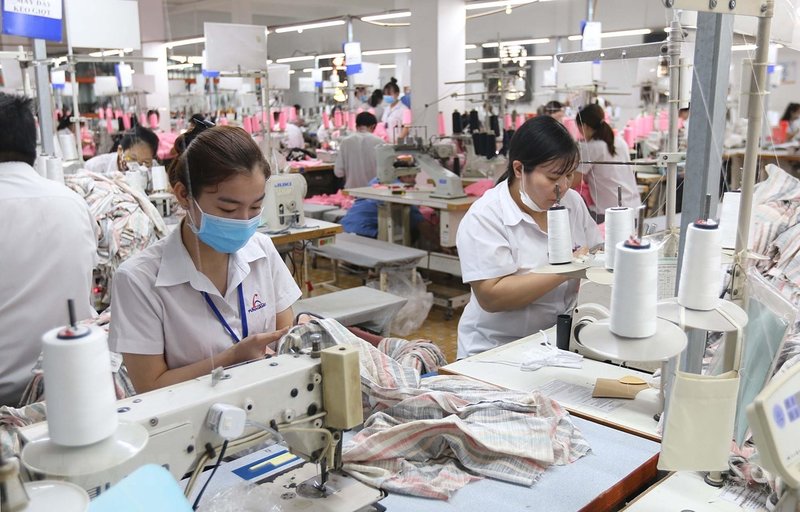74% enterprises may go bankrupt if Covid-19 epidemic lasts 6 months
It is increasingly difficult for enterprises to pay operational expenses as revenues are hit by Covid-19.
Seventy four percent of enterprises in a survey of 1,200 conducted by the Private Economic Development Research Board (Board IV) said they would go bankrupt if the Covid-19 epidemic persists for six months or longer, local media reported.
| Illustrative photo. Source: VNA. |
Such a gloomy outlook should become a reality as companies said their revenues could not cover operational expenses, including salary payment, interest rates, land rental fees, among others.
The survey also revealed nearly 30% of enterprises have lost 20 – 50% of the revenue, and 60% have faced a dire situation as their revenues were shaved by half.
The sectors hardest hit by Covid-19 are tourism, education, textile and garment, footwear, and wood production.
“Without customers and students, many enterprises in the fields of tourism and education are struggling," said the report.
For the textile and footwear sectors, the most concerning issue would be the lack of input materials from China, which make up 61% and 57%, respectively of total materials for production. As a result, most of them could only maintain operations until early March or April.
The wood production sector is also under huge pressure as the current trade flow with China, one of the sector’s key markets, remains limited due to Covid-19.
According to Board IV’s report, China is not only Vietnam’s major source for input materials in manufacturing and processing, but also a market for 60 – 70% of the country’s wood chips and paper product exports.
In this situation, there is a high possibility that these enterprises would have to suspend operations, in turn affecting millions of workers, said the board.
For the time being, many are offering their employees unpaid leave, or even suspending operations temporarily, which, according to Board IV, is causing a severe consequence on the economy with hundreds of workers becoming jobless.
Moreover, around 20% of enterprises said they do not have appropriate measures against the epidemic, indicating passiveness of small and medium enterprises as well as their limited capabilities.
This could be an early warning signal that a more serious crisis could come following the epidemic.
Besides looking for their own solutions, enterprises are seeking support from the government in forms of lower corporate tax, value added tax, waiver of fines for delayed tax payment, among others.
Additionally, the government is advised to provide preferential loans for enterprises and lower interest rates and reschedule debt payment.
At a monthly government meeting on March 3, the government said it planned to spend VND27 trillion (US$1.16 billion) to help businesses cope with the Covid-19 epidemic and help the economy achieve its 6.8% growth target in 2020. The incentives would include tax breaks, delay in tax payment, reductions of land lease fees, and an acceleration of state spending for infrastructure projects.













